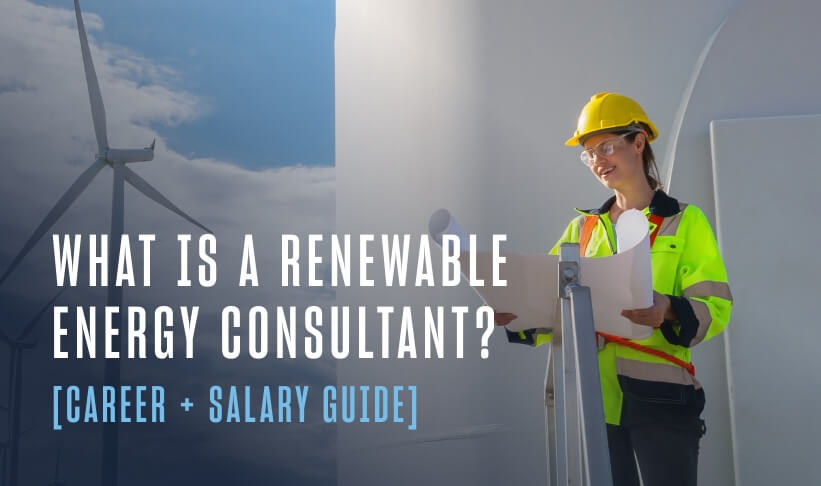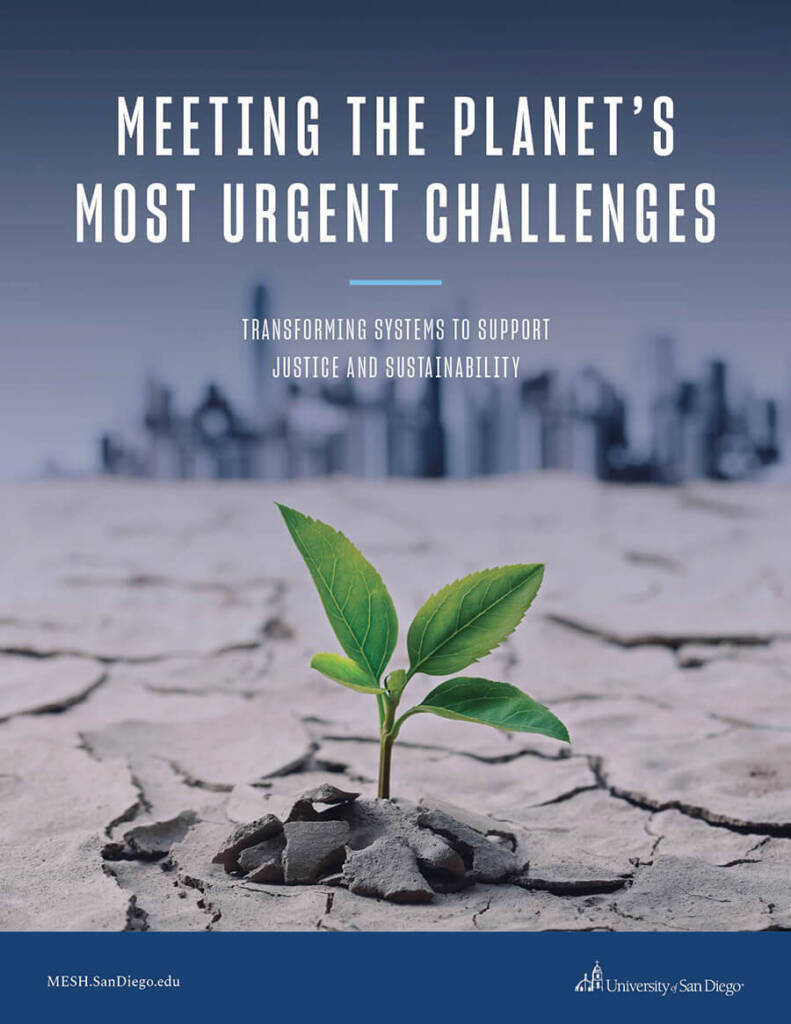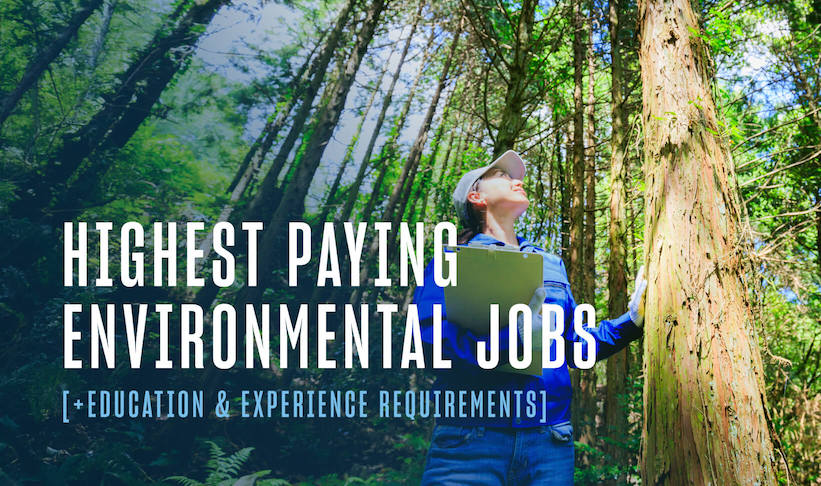The widespread shift toward renewable energy requires a massive technological lift, but it also requires people to reshape the way they think and make decisions about energy production and consumption. As governments, communities and companies confront the realities of climate change, there’s growing demand for professionals who can help navigate this transition with both the right expertise and perspective.
If you’re passionate about sustainability and curious about where your skills and interests might fit into this landscape, renewable energy consulting could be a meaningful direction to explore.
What Does a Renewable Energy Consultant Do?
A renewable energy consultant helps organizations transition toward cleaner, more sustainable sources of energy. Their work spans strategic planning, technical advising, policy analysis and more, all aimed at reducing environmental impact while maintaining operational and economic viability. A consultant’s client may be a corporation attempting to meet new regulatory standards or a municipality trying to expand access to electricity. A renewable energy consultant can provide both the vision and practical steps toward large-scale change.
In many cases, this role involves guiding clients through decisions that affect energy sourcing, infrastructure design and long-term sustainability planning. Consultants evaluate how energy is used and identify areas where efficiency can be improved. They also help clients lower utility costs, reduce carbon emissions and comply with increasingly complex environmental regulations. In addition to high-level planning, consultants also work to ensure that proposed solutions are feasible and effectively implemented.
Depending on their background and focus, renewable energy consultants often specialize in one or more of the following areas:
| SPECIALIZATION | APPLICATION |
| Technology | – Solar energy systems – Wind energy – Hydropower – Bioenergy and waste-to-energy – Geothermal energy |
| Policy | – Renewable energy policy design – Regulatory impact analysis – Permitting and environmental compliance |
| Sustainable development | – Energy access and rural electrification – Community-owned energy systems – Just energy transitions (transitions that seek to include and avoid negative impact on historically marginalized groups) |
| Systems integration and engineering | – Energy storage and grid integration – Microgrids and hybrid systems – Energy efficiency |
| Climate and environmental impact | – Climate risk and vulnerability assessments – Ecological footprint of renewable systems |
This diversity of focus reflects the complexity of modern global energy challenges and the need for consultants who can navigate both technical systems and social contexts.
Related Roles
Renewable energy consultants possess qualities applicable to a wide range of professional pathways. As consultants build expertise, many go on to shape larger-scale projects, influence policy or lead innovation in the energy sector.
Each of the following career paths builds on the analytical, technical and ethical foundations that renewable energy consulting helps to develop, and each offers new ways to shape the future of energy through policy, practice and research.
Energy Policy Advisor or Analyst
This role focuses on identifying where energy systems fall short and working to change the regulatory or political conditions that sustain those failures. Some advisors concentrate on rewriting outdated frameworks, while others take on more strategic positions within institutions to shape broader transitions.
Program Manager for Sustainable Development Projects
Sustainable development program managers work in contexts where infrastructure is shaped by both environmental pressure and historical inequality. Their projects can involve cross-border collaboration or deeply localized partnerships, depending on the site.
Social Entrepreneur or Energy Start-Up Founder
Innovators in this space tend to begin with a specific problem, such as an unmet need, a broken system or a community systemically excluded from planning. Their solutions might take the form of new technologies, redesigned business models or service delivery approaches built from the ground up.
Academic Researcher or Lecturer in Energy and Society
Some consultants pivot toward academia, where they often focus on a question that can’t be answered by technical data alone. Researchers trace how energy systems shape daily life or how histories of extraction and dispossession still structure access. In the classroom, lecturers introduce students to the tensions and possibilities that come with centering social justice in a field traditionally driven by engineering.
What Is the Average Salary for a Renewable Energy Consultant?
Salaries in this field depend on a number of factors, including the type of employer, the consultant’s area of specialization, the scale of a project and the geographic region where the work takes place. Some consultants are employed by large engineering firms, others work on contract with public agencies and still others operate independently.
According to the U.S. Bureau of Labor Statistics, environmental scientists and specialists earned a median annual wage of $80,060 as of May 2024. This includes renewable energy consultants, especially those who focus on environmental compliance or sustainability reporting. However, consultants with technical training in energy systems or grid design may earn above that range, depending on the scope of their work. Those working in community-based or nonprofit settings may earn less, particularly when projects are grant-funded or designed with affordability in mind.
The job outlook is steady. Between 2023 and 2033, employment in this area is projected to grow by 7 percent (faster than average), which reflects both rising demand for low-carbon infrastructure and increasing pressure on institutions to meet environmental targets. Growth is not confined to one sector, and new roles continue to emerge as energy systems evolve and intersect with other areas of public concern.
While salary provides one way to measure value, many who enter this field are also motivated by questions of purpose and impact. For some, consulting offers the ability to choose clients and shape the direction of their work. Others are drawn to the role because it provides a way to stay connected to both practice and policy without being tied to a single institution.
What Skills Are Needed to Become a Renewable Energy Consultant?
This role requires a range of abilities that don’t come from a single discipline or field. Consultants may draw from technical training, on-the-ground experience and the ability to work across institutional boundaries. These skills are often shaped by the kind of work a consultant chooses to focus on, but certain foundations are shared across the profession.
Written and verbal communication skills
Clear communication makes it possible to connect technical insights with lived realities. Consultants often work with audiences that hold different assumptions about energy, the environment or levels of risk. This may involve presenting to policymakers one day and working with grassroots organizers the next.
Critical thinking skills
Many consulting projects unfold in unpredictable settings or circumstances. A consultant might encounter inconsistent data or conflicting goals between stakeholders. Being able to identify patterns, test assumptions and recognize when a strategy needs to shift is central to the work.
Environmental knowledge
Understanding the ecological consequences of energy systems is not optional. Consultants must be able to evaluate impacts on land, water and air, as well as navigate the legal frameworks that shape project approval. Without this grounding, recommendations risk causing harm or failing to meet regulatory thresholds.
Data analysis skills
Numbers alone don’t lead to action. Consultants need to extract meaning from data and use it to support proposals, challenge flawed plans or answer questions from funders and collaborators. Sometimes this involves quantitative modeling; other times it means working with incomplete or informal datasets.
Project management skills
Timelines change. Budgets shift. Stakeholder priorities evolve. Consultants need to adapt as conditions change to keep progress steady. This requires coordinating across teams and responding to delays or constraints without losing sight of the project’s larger purpose.
There is no fixed combination of skills that guarantees success. What matters is an ongoing ability to learn, respond to context and connect knowledge across disciplines in ways that move projects forward without losing sight of justice, ecology or place.
Preferred Qualifications for Renewable Energy Consultants
Renewable energy consultants come from a wide range of academic and professional backgrounds. Some begin their careers in technical fields, while others enter the profession through policy work, environmental planning or community-based development. What matters most is a strong foundation in both energy systems and the broader contexts (social, ecological, regulatory, etc.) that shape how those systems function in the real world.
Certifications
Many consultants pursue certifications to strengthen their credibility, demonstrate expertise or meet industry standards. Some of the most recognized include:
- Certified Energy Manager (CEM) — Offered by the Association of Energy Engineers, this certification focuses on optimizing energy use in buildings and systems.
- LEED Accredited Professional (LEED AP) — This credential signals knowledge of green building practices and sustainable design, often relevant in urban development or infrastructure projects.
- NABCEP Certification — The North American Board of Certified Energy Practitioners offers credentials in solar design, installation and technical sales, useful for those working directly with renewable technologies.
- Renewable Energy Professional (REP) — Geared toward international practitioners, this certification supports those involved in project development, financing or resource assessment.
- ISO 50001 Energy Management Systems Auditor — This designation aligns with global energy management standards, especially in corporate or industrial settings.
- Certified Climate Change Professional (CC-P) — With a focus on climate mitigation and adaptation, this certification supports consultants working at the interface of energy and environmental risk.
Degrees
Educational pathways vary depending on specialization. Some consultants come from engineering backgrounds, others from the social sciences or planning. At the undergraduate level, common degrees include:
- Environmental Science
- Energy Engineering
- Energy Management
- Environmental Management
- Renewable Energy
- Sustainable Development
Graduate-level education often plays a key role for those looking to move into more strategic, policy-driven or interdisciplinary roles (as well as higher salaries). Some pursue degrees in:
- Environmental studies and sustainability
- Renewable energy or energy systems engineering
- Energy policy or energy and environmental policy
- Sustainable development or sustainability science
For those whose interests cross boundaries — such as linking technology with justice, or systems design with ecological thought — interdisciplinary programs can offer a better fit than more narrowly defined technical degrees. For example, the University of San Diego’s MS in Engineering, Sustainability and Health (MESH) program brings together students from diverse academic and professional backgrounds to explore how energy, health, environment and justice intersect. Rather than training students for a single type of job, the program encourages them to shape careers that respond to the complex, evolving challenges of today and tomorrow.
Where Does a Renewable Energy Consultant Work?
As a general practice, consultants in any field don’t necessarily have a fixed workplace. Some renewable energy consultants spend most of their time in office environments writing reports, modeling energy systems or advising clients through virtual platforms. Others work in the field, helping implement renewable energy technologies or conducting site assessments. Many do both, moving between research, planning and on-site work depending on the project’s phase or location.
The organizations that hire renewable energy consultants vary in mission, structure and scale:
- Large corporations bring consultants on to develop sustainability strategies or to meet environmental reporting requirements.
- Government agencies hire them to evaluate energy programs, support regulatory planning or guide infrastructure development.
- Some consultants work with non-profits or NGOs focused on community energy projects, especially in places experiencing energy poverty or rapid environmental change.
- Research institutions often bring in consultants to contribute to applied studies or scenario modeling.
- Some consultants may work for independent, local or global consulting firms that specialize in energy transition services, environmental impact analysis or climate policy advising.
Some well-known consulting firms engaged in renewable energy work include:
These companies take on clients across the public and private sectors, often working at the intersection of infrastructure, finance and environmental compliance. Smaller boutique firms also operate in this space, particularly those focused on regional energy systems, Indigenous land stewardship or participatory planning processes.
Where a consultant ends up working often reflects their values and technical focus, as well as their own comfort navigating different institutional cultures. Some prioritize flexibility and move between organizations, while others choose roles embedded in specific sectors where they can work over longer periods.
How Do I Become a Renewable Energy Consultant?
There’s no single path into this field, but most consultants build their careers through a mix of education, hands-on experience and steady skill development. The goal of pursuing education and training isn’t necessarily to meet formal job requirements, but to build the capacity to work across disciplines, communicate with different audiences and respond to complex environmental and social challenges with an eclectic mix of skills and expertise.
Many professionals follow a path that looks like this:
Earn an undergraduate degree
Fields like environmental engineering, energy systems, sustainable development or public policy can provide a strong educational foundation. Some people begin in technical programs, while others come from the social sciences or industrial design. What matters is developing both content knowledge and critical awareness of the broader systems in which energy decisions are made.
Pursue internships in the energy sector
Internships offer a chance to see how ideas are put into practice. Either in a corporate sustainability office, a public utility or a grassroots nonprofit, this kind of exposure can help you narrow your focus and build your network.
Get involved in student groups
Joining energy or sustainability organizations during your studies helps you build relationships and stay connected to current issues and policy debates. These groups also give you opportunities to lead projects, organize events or collaborate with people outside your field.
Develop relevant technical skills
Depending on your interest area, this might include software like Excel, GIS or coding environments used for energy modeling. Being comfortable with data, including how it’s gathered, interpreted and shared, can open up opportunities in both policy and planning.
Consider graduate education or certification
A master’s degree can deepen your expertise and help you shift into more strategic or leadership roles. Some professionals also pursue certifications in energy management, environmental compliance or urban planning. These credentials are often useful when entering consulting firms or working on large infrastructure projects.
Build a portfolio
Compile relevant coursework, independent research or client-facing work to show how you think and what you’ve done. Case studies, technical reports, maps or even community engagement materials can demonstrate the scope and depth of your experience.
Becoming a renewable energy consultant is less about checking boxes and more about building a career trajectory. Some people set out with a plan to become a consultant; others discover the field through adjacent work. In both cases, the role rewards curiosity, adaptability and a willingness to keep learning across disciplines and sectors.
If you’re drawn to the challenges and possibilities of renewable energy consulting and you’re looking for a way to deepen your impact, consider exploring the online MESH program at the University of San Diego. Designed for those who want to work at the intersection of environment, health and social justice, MESH supports students in building the knowledge, tools and relationships needed to lead change across sectors. Whether you’re early in your career or ready to shift directions, the program offers space to grow and contribute in meaningful ways.
FAQs
What does a renewable energy specialist do?
A renewable energy specialist works on projects that support the transition to cleaner energy sources. Their responsibilities depend on the setting. Some design or assess energy systems, while others focus on environmental compliance or policy advising. The work may involve analyzing data, coordinating with project teams or advising clients on how to reduce reliance on fossil fuels. Specialists often operate in roles that link technical work with planning, strategy or policy.
What degree do you need to be a renewable energy consultant?
Many consultants start with a bachelor’s degree in a related field. This could include environmental science, engineering, public policy or sustainable development. Some enter the field through hands-on experience, while others pursue graduate education to expand their focus. A master’s degree can be especially useful for those interested in policy, systems planning or interdisciplinary roles. What’s essential is a foundation that supports both analytical thinking and applied problem-solving.
How much do renewable energy consultants make in the US?
Salaries vary depending on experience, project size, location and the type of organization. According to data from the U.S. Bureau of Labor Statistics, environmental scientists and specialists (often used as a benchmark for this type of work) earned a median wage of just over $80,000 in 2024. Some consultants working in technical or corporate roles may earn more. Others, especially those focused on grassroots or nonprofit projects, may earn less but often find meaning in the social impact of their work.



![Preview image of 19 Climate Change Careers Changing the World [+Education & Experience Requirements]](https://onlinedegrees.sandiego.edu/wp-content/uploads/2024/03/19-climate-change-careers.jpg)
